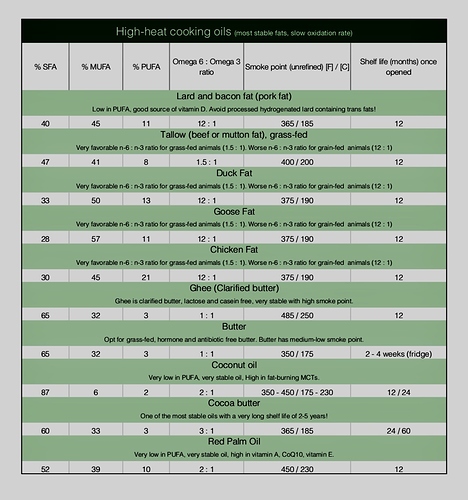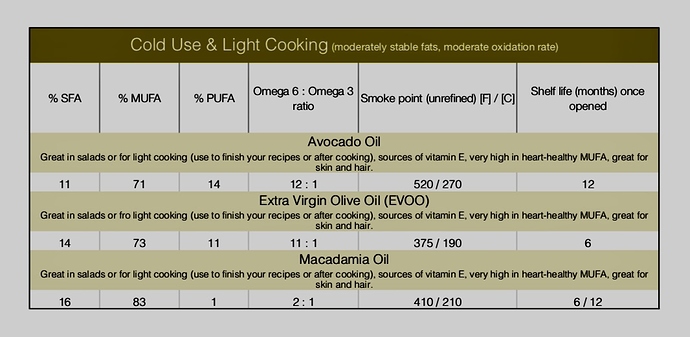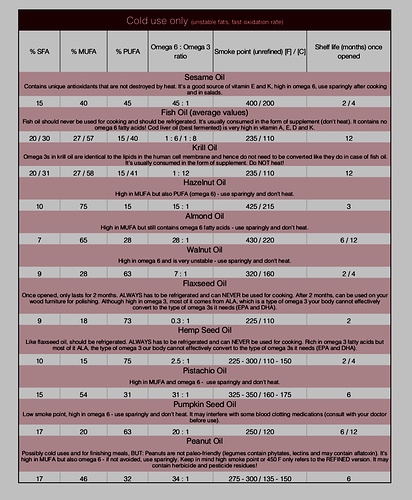I saw in your top graph that it mentioned to avoid processed hydrogenated lard. 2KetoDudes’ Richard Morris disputes that claim-
"We have one here in Australia called Superfry which is rendered beef drippings, but on it’s nutritional information it is called hydrogenated animal fat.
I suspect what happens is beef drippings aren’t particularly shelf stable because they have a mix of saturated, and unsaturated fatty acids. Cows are like us, our fat is mostly palmitic (saturated), and Oleic (mono-unsaturated) with a little polyunsaturated mixed in.
So maybe to make a shelf stable, solid at room temp in a Walmart they have hydrogenated the unsaturated fatty acids.
But the other thing this could be, is that saturated fatty acids are saturated with hydrogen, by definition they are fully hydrogenated - naturally. So THOSE hydrogenated fats aren’t bad at all.
The reason hydrogenation has such a bad rap is it’s a method for turning cheap plant oils (corn/soy oil) solid at room temperature by flattening polyunsaturated fatty acids so they stack - by making them into trans fats."
"…hydrogenated lard is a whole heck of a lot better for us than hydrogenated seed oils.
Ideally, if you want the best possible option, you would slow cook pork fat and render the lard off yourself then you would end up with a product that is slightly more liquid than commercial hydrogenated lard.
But if we are talking about a yardstick from bad at -100 points, neutral at 0 points, and good at 100 pts, hydrogenated seed oil is probably -90, hydrogenated lard or tallow is probably 90, and home rendered lard or tallow is probably 95, and home rendered lard or tallow from grass fed animals is 100."








